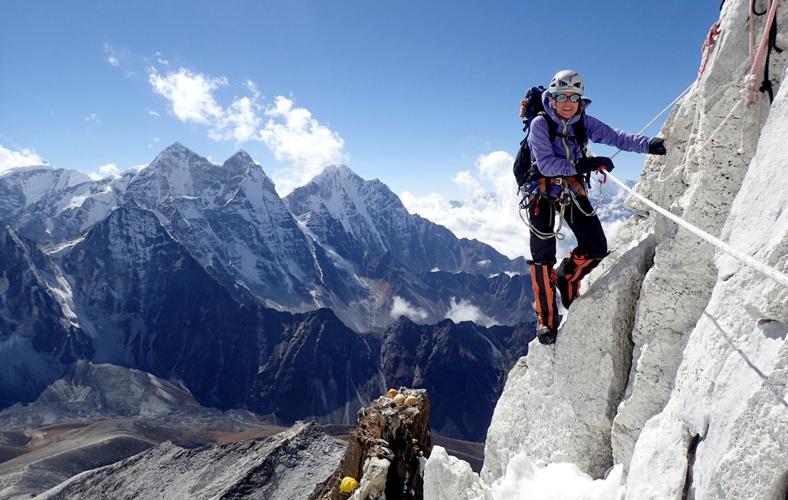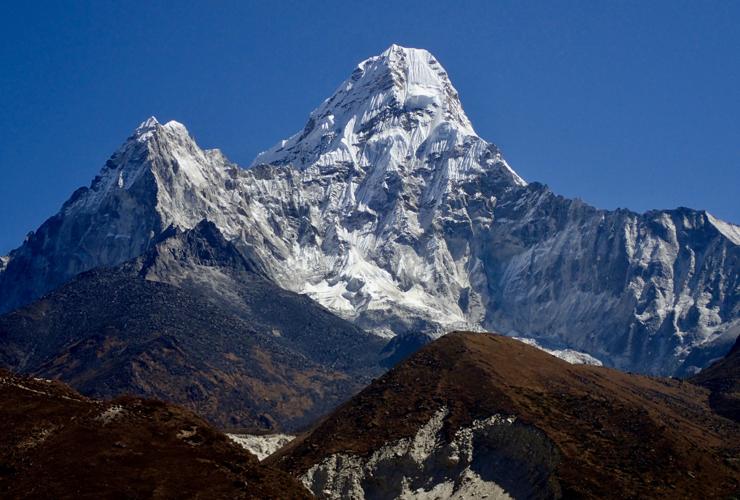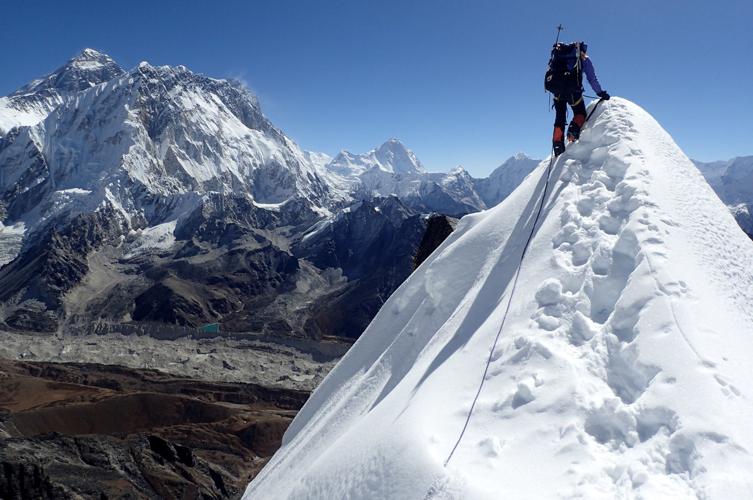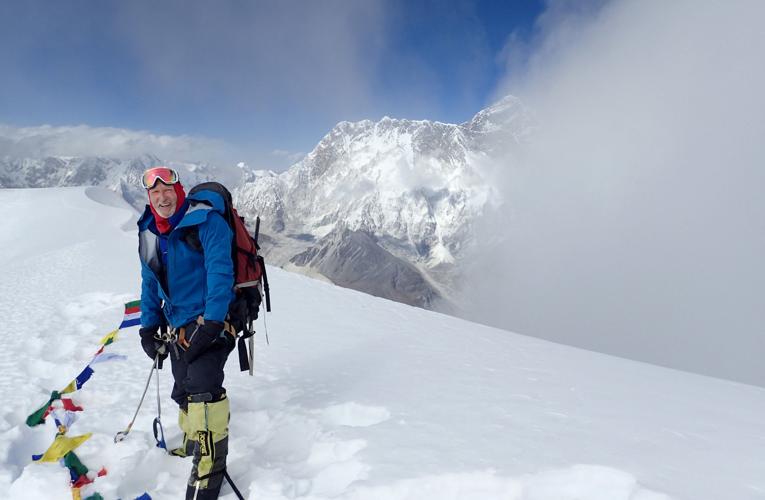Ama Dablam is a high, cold, snow-plastered, stunningly beautiful peak — sometimes known as the Matterhorn of the Himalayas in Nepal.
No wonder Tucson mountaineers Scott and Nicole Clark felt compelled to climb it.
Scott, an anesthesiologist, and Nicole, a nurse, have climbed dozens of soaring summits around the world — including two of the highest peaks on the planet and others in Europe, South America and elsewhere.
They set out last October on a quest to stand atop the 22,400-foot summit of Ama Dablam in the Mount Everest region of Nepal.
But before beginning that journey, they carried out a rigorous training regimen. That preparation had put them in good stead for previous climbs of the Matterhorn and Eiger in Europe, Huascaran in Peru, Mount McKinley in Alaska and, among many others, two of the 14 highest mountains on Earth: 26,906-foot Cho Oyu in Tibet and 26,360-foot Gasherbrum II in Pakistan.
“I did lots of running and we did hikes with heavy packs,” said Nicole, 46, a native of Switzerland who moved to the United States in 1992. The couple met in 1997 while both were working at St. Joseph’s Hospital in Tucson.
Said Scott, 56: “We did a lot on the stair climber while carrying packs.”
Nicole added that she and Scott, both of whom are marathon runners and experienced rock climbers, “did some rock climbs to make sure the rope skills were up to date.”
OFF TO NEPAL
The Clarks flew to Nepal in October to join a commercial expedition organized by a Seattle-based group called Summit Climb. The group provided base-camp logistics, food and fixed lines (ropes anchored in the rock and snow of Ama Dablam) to aid climbers.
After landing at a high airstrip at Lukla in the Everest region, Scott and Nicole trekked for days toward the Ama Dablam base camp — taking a long on-foot detour to do a warm-up climb on a 20,000-foot peak called Lobuche East.
“The packs were pretty heavy, 50 to 60 pounds”, said Scott, noting that the couple carried their own food, fuel, stove and tent along the way.
At the base camp for Ama Dablam, the two joined a group of about 20 other climbers.
“There were people from the U.S., Norway, Australia, Russia, Germany and Austria in our group,” Scott said.
But the Clarks, who prefer to climb on their own, found solitude on their summit day.
“We had the peak completely to ourselves on our summit day — October 23,” Scott said. “We left (a high camp at 19,800 feet) at 5 in the morning. The sun came up at about 6. It took us 8½ hours to the summit.
“It was 13 hours round trip from Camp 2 (the high camp) to the summit” at 22,400 feet, he said. “It was very enjoyable for us.”
Said Nicole: “It was cold, frozen. But what stands out is the beauty of the mountain and the exposure (the sensation of being on a very high, very steep place with a long way to fall if one loses footing).
Fortunately, the Clarks kept their footing and returned safely from the mountain.
WHAT’S NEXT?
“We do have something on the horizon,” Scott said. Without offering specifics, he added, “It might involve going back to Nepal.”
Nicole, meanwhile, has a suggestion for the rest of us.
“Go to Nepal,” she said. “And the Everest region is the prettiest.”







